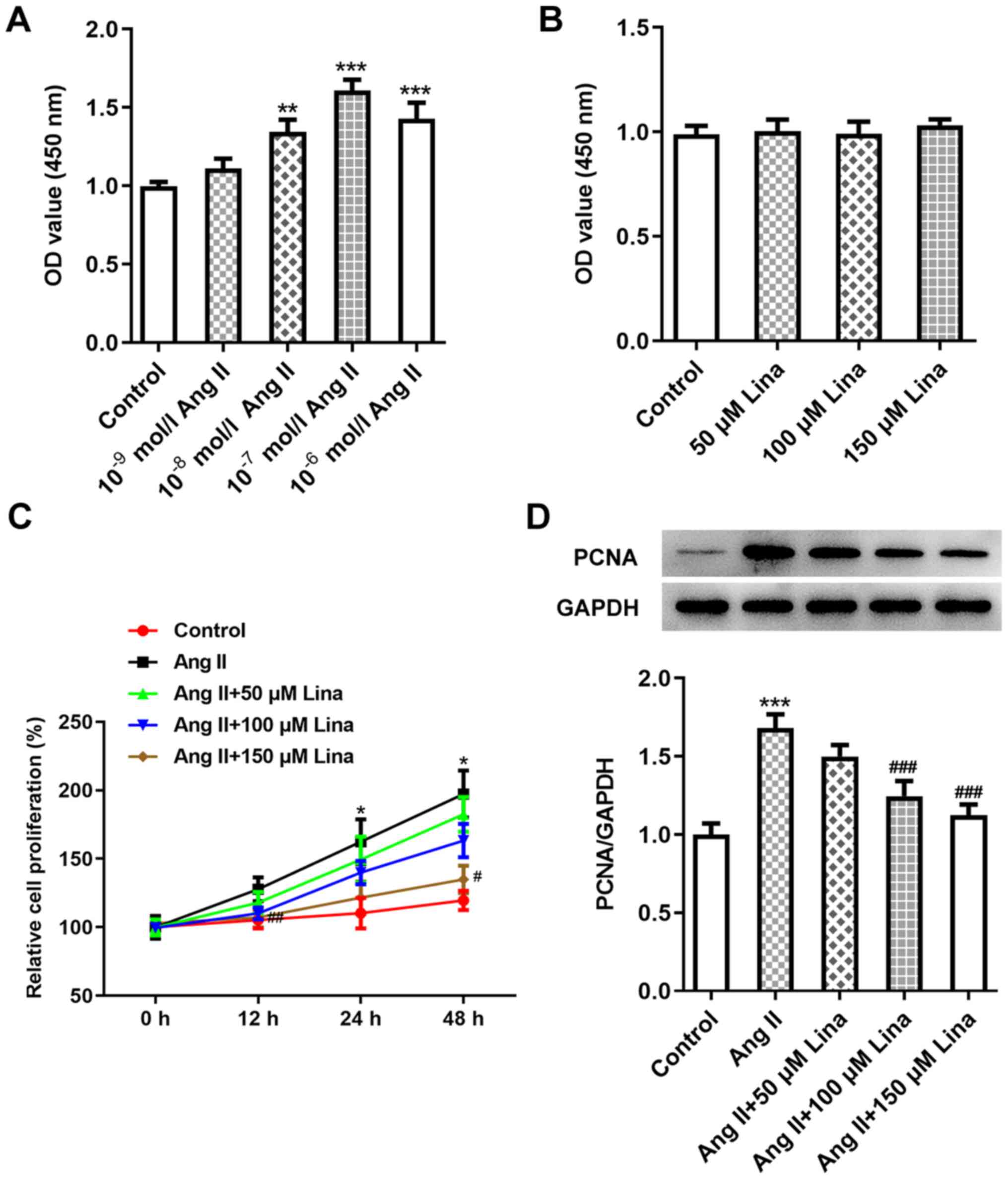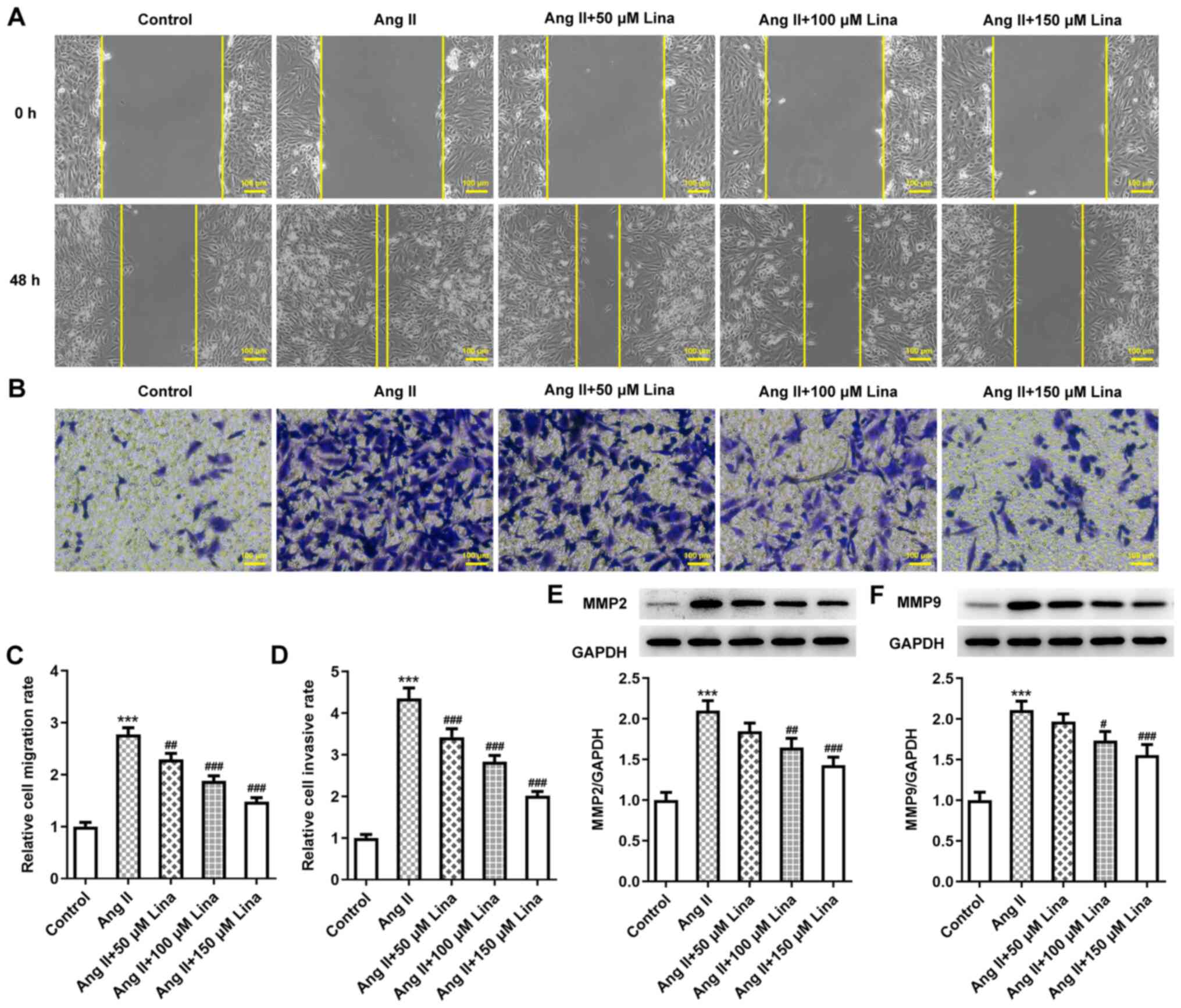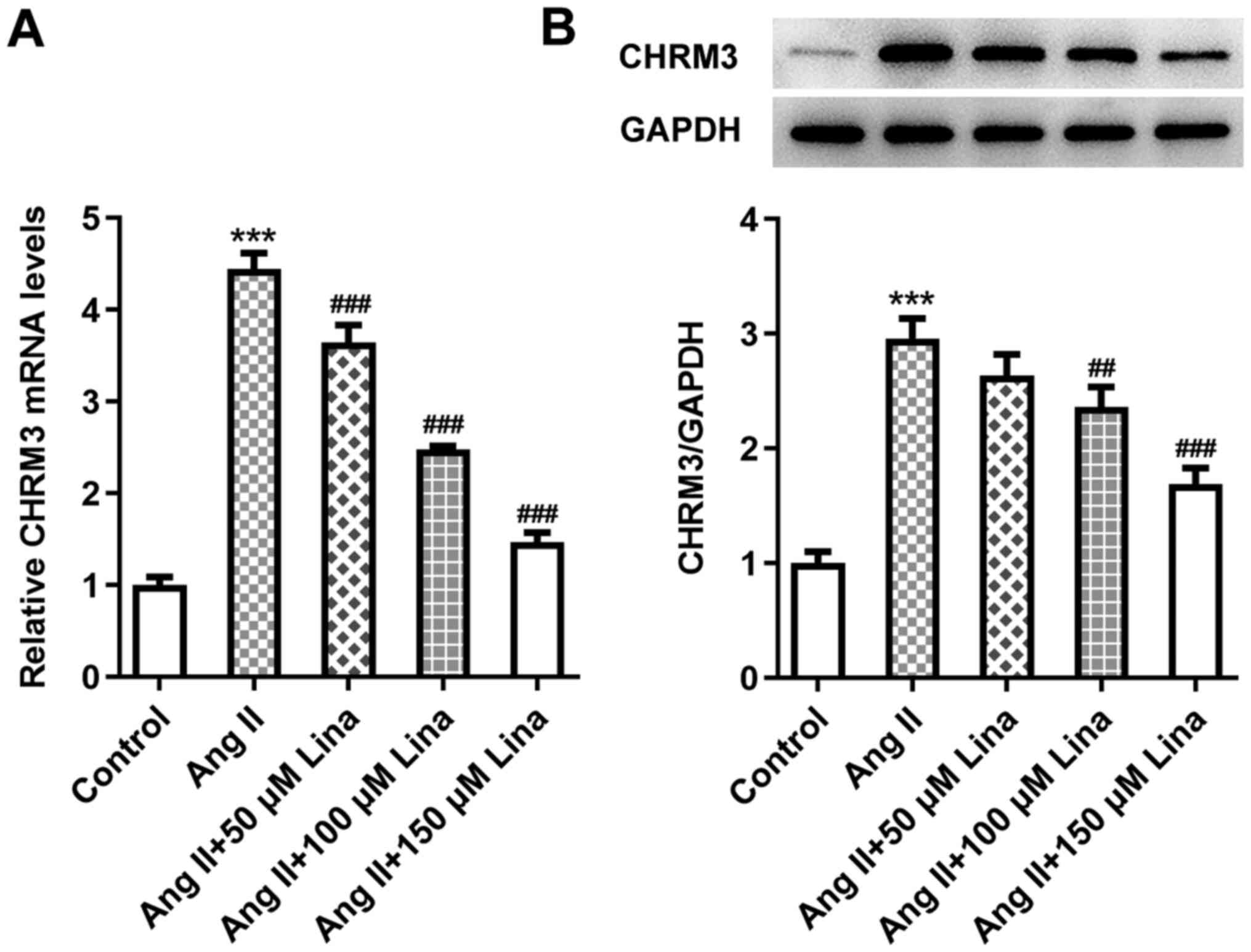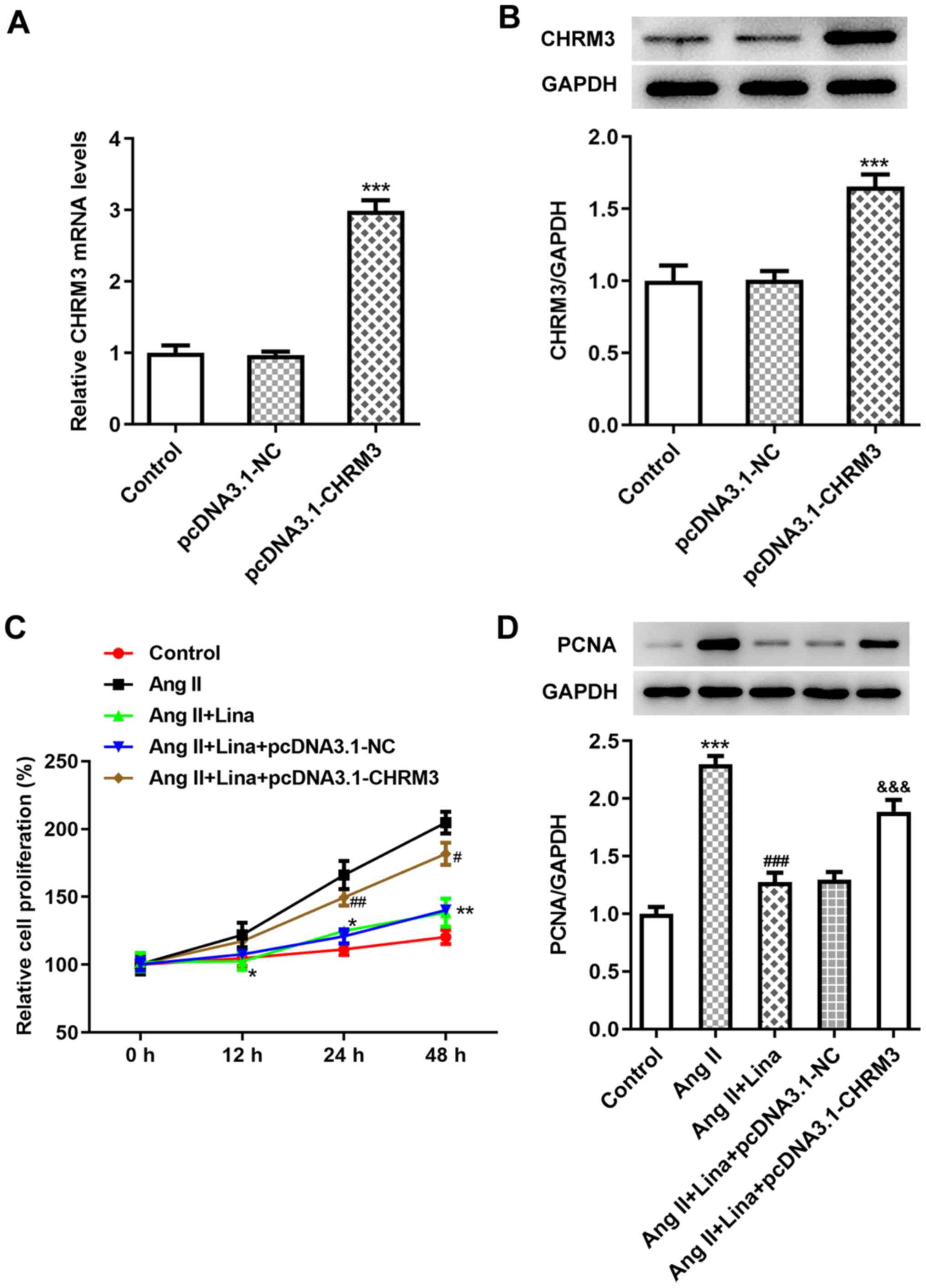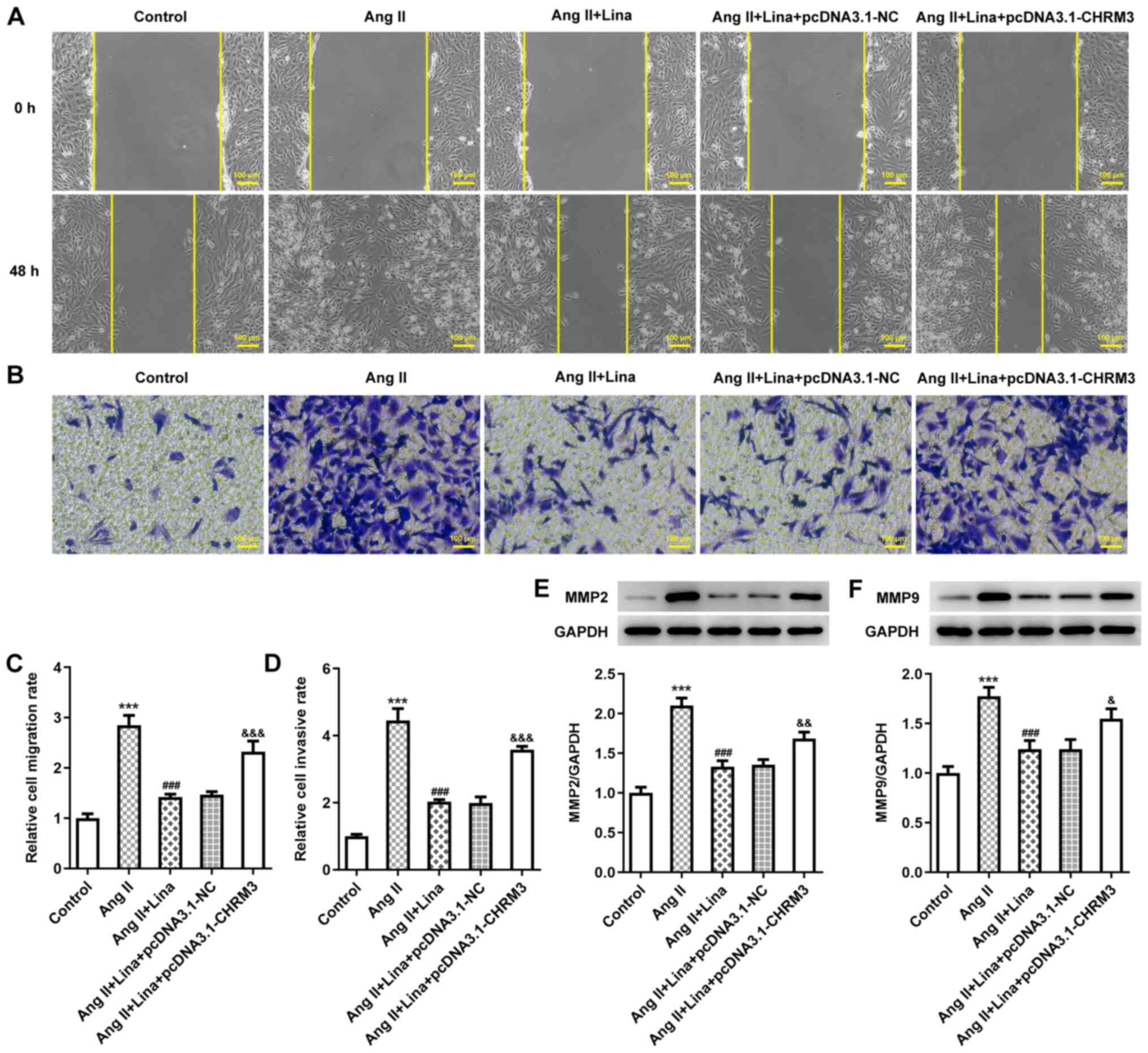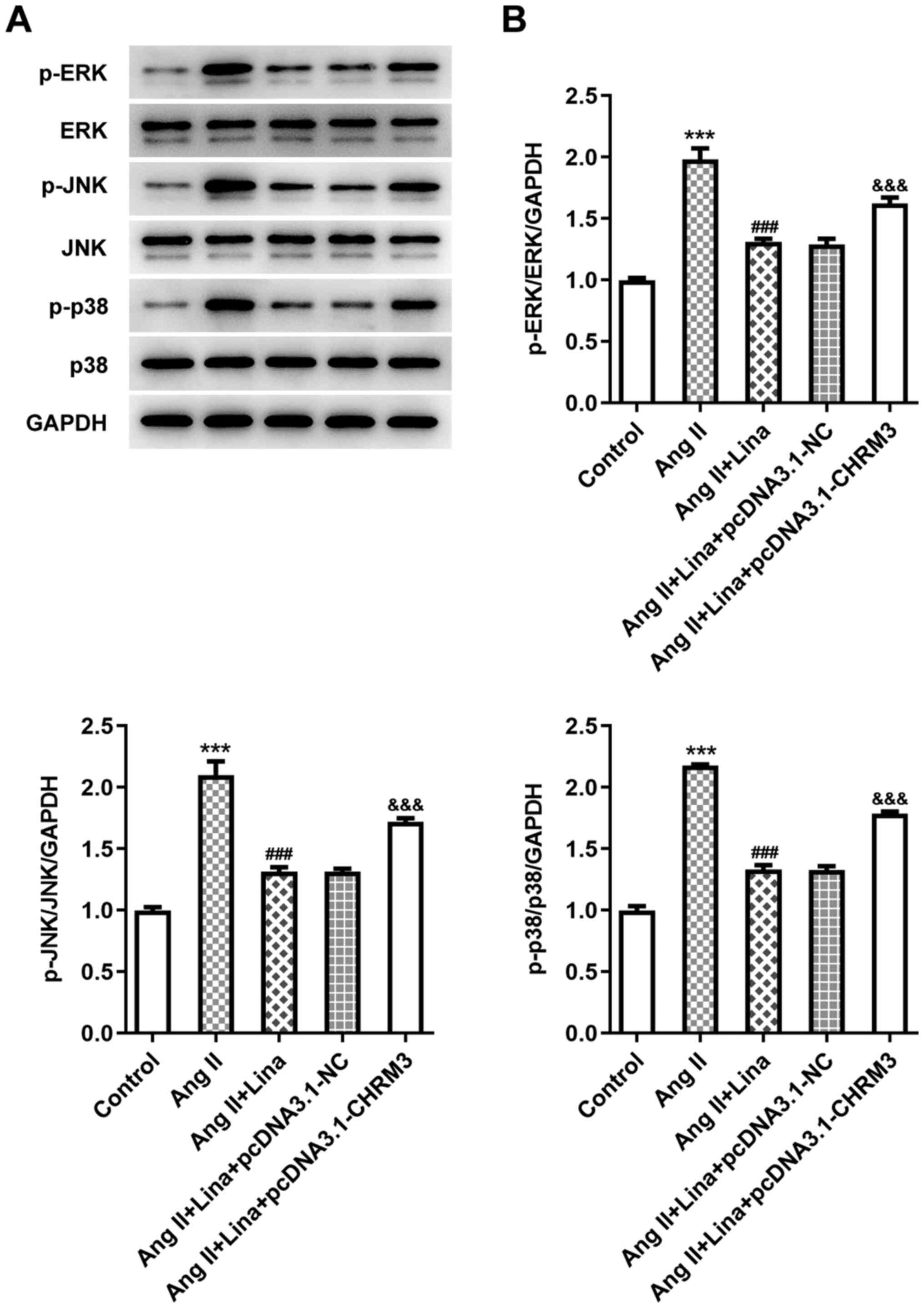|
1
|
Czuriga-Kovács KR, Czuriga D and Csiba L:
Influence of Hypertension, Alone and in Combination with Other
Vascular Risk Factors on Cognition. CNS Neurol Disord Drug Targets.
15:690–698. 2016. View Article : Google Scholar : PubMed/NCBI
|
|
2
|
Strandberg TE and Pitkala K: What is the
most important component of blood pressure: Systolic, diastolic or
pulse pressure? Curr Opin Nephrol Hypertens. 12:293–297. 2003.
View Article : Google Scholar : PubMed/NCBI
|
|
3
|
Kawabe H, Azegami T, Takeda A, Kanda T,
Saito I, Saruta T and Hirosi H: Features of and preventive measures
against hypertension in the young. Hypertens Res. 42:935–948. 2019.
View Article : Google Scholar : PubMed/NCBI
|
|
4
|
Devos P and Menard J: Bibliometric
analysis of research relating to hypertension reported over the
period 1997–2016. J Hypertens. 37:2116–2122. 2019. View Article : Google Scholar : PubMed/NCBI
|
|
5
|
Hurtubise J, McLellan K, Durr K, Onasanya
O, Nwabuko D and NdisAng JF: The Different Facets of Dyslipidemia
and Hypertension in Atherosclerosis. Curr Atheroscler Rep.
18:822016. View Article : Google Scholar : PubMed/NCBI
|
|
6
|
Chamarro R, Ponz A, Alonso MD, Gil R and
Laínez JM: [Arterial hypertension and intracerebral hemorrhage].
Neurologia. 18:731–739. 2003.PubMed/NCBI
|
|
7
|
Turin TC, Okamura T, Afzal AR, Rumana N,
Watanabe M, Higashiyama A, Nakao Y, Nakai M, Takegami M, Nishimura
K, et al: Hypertension and lifetime risk of stroke. J Hypertens.
34:116–122. 2016. View Article : Google Scholar : PubMed/NCBI
|
|
8
|
Arribas SM, Hinek A and González MC:
Elastic fibres and vascular structure in hypertension. Pharmacol
Ther. 111:771–791. 2006. View Article : Google Scholar : PubMed/NCBI
|
|
9
|
Shi L, Tian C, Sun L, Cao F and Meng Z:
The lncRNA TUG1/miR-145-5p/FGF10 regulates proliferation and
migration in VSMCs of hypertension. Biochem Biophys Res Commun.
501:688–695. 2018. View Article : Google Scholar : PubMed/NCBI
|
|
10
|
Owens GK, Kumar MS and Wamhoff BR:
Molecular regulation of vascular smooth muscle cell differentiation
in development and disease. Physiol Rev. 84:767–801. 2004.
View Article : Google Scholar : PubMed/NCBI
|
|
11
|
Herring BP, Hoggatt AM, Burlak C and
Offermanns S: Previously differentiated medial vascular smooth
muscle cells contribute to neointima formation following vascular
injury. Vasc Cell. 6:212014. View Article : Google Scholar : PubMed/NCBI
|
|
12
|
Montezano AC, Nguyen Dinh Cat A, Rios FJ
and Touyz RM: Angiotensin II and vascular injury. Curr Hypertens
Rep. 16:4312014. View Article : Google Scholar : PubMed/NCBI
|
|
13
|
Pereira I, Severino P, Santos AC, Silva AM
and Souto EB: Linalool bioactive properties and potential
applicability in drug delivery systems. Colloids Surf B
Biointerfaces. 171:566–578. 2018. View Article : Google Scholar : PubMed/NCBI
|
|
14
|
Anjos PJ, Lima AO, Cunha PS, De Sousa DP,
Onofre AS, Ribeiro TP, Medeiros IA, Antoniolli AR, Quintans-Júnior
LJ and Santosa MR: Cardiovascular effects induced by linalool in
normotensive and hypertensive rats. Z Naturforsch C J Biosci.
68:181–190. 2013. View Article : Google Scholar : PubMed/NCBI
|
|
15
|
Gong X, WAng B, Yan L, Lu X and Zhao X:
Linalool inhibits the growth of human T cell acute lymphoblastic
leukemia cells with involvement of the MAPK signaling pathway.
Oncol Lett. 20:1812020. View Article : Google Scholar : PubMed/NCBI
|
|
16
|
Xing X, Ma JH, Fu Y, Zhao H, Ye XX, Han Z,
Jia FJ and Li X: Essential oil extracted from erythrina
corallodendron L. leaves inhibits the proliferation, migration, and
invasion of breast cancer cells. Medicine (Baltimore).
98:e170092019. View Article : Google Scholar : PubMed/NCBI
|
|
17
|
Eguchi S, Kawai T, Scalia R and Rizzo V:
Understanding Angiotensin II Type 1 Receptor Signaling in Vascular
Pathophysiology. Hypertens. 71:804–810. 2018. View Article : Google Scholar : PubMed/NCBI
|
|
18
|
Livak KJ and Schmittgen TD: Analysis of
relative gene expression data using real-time quantitative PCR and
the 2(-Delta Delta C(T)) Method. Methods. 25:402–408. 2001.
View Article : Google Scholar : PubMed/NCBI
|
|
19
|
Strzalka W and Ziemienowicz A:
Proliferating cell nuclear antigen (PCNA): A key factor in DNA
replication and cell cycle regulation. Ann Bot (Lond).
107:1127–1140. 2011. View Article : Google Scholar : PubMed/NCBI
|
|
20
|
Urrutia G, Laurito S, Campoy E, Nasif D,
Branham MT and Roqué M: PAX6 Promoter Methylation Correlates with
MDA-MB-231 Cell Migration, and Expression of MMP2 and MMP9. Asian
Pac J Cancer Prev. 19:2859–2866. 2018.PubMed/NCBI
|
|
21
|
FAng G, Qi J, HuAng L and Zhao X: LncRNA
MRAK048635_P1 is critical for vascular smooth muscle cell function
and phenotypic switching in essential hypertension. Biosci Rep.
39:392019. View Article : Google Scholar
|
|
22
|
Basatemur GL, Jørgensen HF, Clarke MCH,
Bennett MR and Mallat Z: Vascular smooth muscle cells in
atherosclerosis. Nat Rev Cardiol. 16:727–744. 2019. View Article : Google Scholar : PubMed/NCBI
|
|
23
|
Jun MY, Karki R, Paudel KR, Sharma BR,
Adhikari D and Kim DW: Alkaloid rich fraction from Nelumbo nucifera
targets VSMC proliferation and migration to suppress restenosis in
balloon-injured rat carotid artery. Atherosclerosis. 248:179–189.
2016. View Article : Google Scholar : PubMed/NCBI
|
|
24
|
Liao H, Gong J, ZhAng W and Guo X:
Valsartan inhibits Angiotensin II-induced proliferation of vascular
smooth muscle cells via regulating the expression of mitofusin 2. J
Huazhong Univ Sci Technolog Med Sci. 32:31–35. 2012. View Article : Google Scholar : PubMed/NCBI
|
|
25
|
Borroto-Escuela DO, Agnati LF, Fuxe K and
Ciruela F: Muscarinic acetylcholine receptor-interacting proteins
(mAChRIPs): Targeting the receptorsome. Curr Drug Targets.
13:53–71. 2012. View Article : Google Scholar : PubMed/NCBI
|
|
26
|
Kruse AC, Hu J, Kobilka BK and Wess J:
Muscarinic acetylcholine receptor X-ray structures: Potential
implications for drug development. Curr Opin Pharmacol. 16:24–30.
2014. View Article : Google Scholar : PubMed/NCBI
|
|
27
|
Beaman GM, Galatà G, Teik KW, Urquhart JE,
Aishah A, O'Sullivan J, Bhaskar SS, Wood KA, Thomas HB, O'Keefe RT,
et al: A homozygous missense variant in CHRM3 associated with
familial urinary bladder disease. Clin Genet. 96:515–520. 2019.
View Article : Google Scholar : PubMed/NCBI
|
|
28
|
Tokura Y: New Etiology of Cholinergic
Urticaria. Curr Probl Dermatol. 51:94–100. 2016. View Article : Google Scholar : PubMed/NCBI
|
|
29
|
Deng AY, deBlois D, Laporte SA, Gelinas D,
Tardif JC, Thorin E, Shi Y, Raignault A and Menard A: Novel
Pathogenesis of Hypertension and Diastolic Dysfunction Caused by
M3R (Muscarinic Cholinergic 3 Receptor) Signaling. Hypertens.
72:755–764. 2018. View Article : Google Scholar : PubMed/NCBI
|
|
30
|
WAng N, Dong BJ, Quan Y, Chen Q, Chu M, Xu
J, Xue W, HuAng YR, YAng R and Gao WQ: Regulation of Prostate
Development and Benign Prostatic Hyperplasia by Autocrine
Cholinergic Signaling via Maintaining the Epithelial Progenitor
Cells in Proliferating Status. Stem Cell Reports. 6:668–678. 2016.
View Article : Google Scholar : PubMed/NCBI
|
|
31
|
WAng N, Yao M, Xu J, Quan Y, ZhAng K, YAng
R and Gao WQ: Autocrine Activation of CHRM3 Promotes Prostate
Cancer Growth and Castration Resistance via CaM/CaMKK-Mediated
Phosphorylation of Akt. Clin Cancer Res. 21:4676–4685. 2015.
View Article : Google Scholar : PubMed/NCBI
|
|
32
|
Zheng XM, ZhAng P, Liu MH, Chen P and
ZhAng WB: MicroRNA-30e inhibits adhesion, migration, invasion and
cell cycle progression of prostate cancer cells via inhibition of
the activation of the MAPK signaling pathway by downregulating
CHRM3. Int J Oncol. 54:443–454. 2019.PubMed/NCBI
|
|
33
|
Sun Y, Liu WZ, Liu T, Feng X, YAng N and
Zhou HF: Signaling pathway of MAPK/ERK in cell proliferation,
differentiation, migration, senescence and apoptosis. J Recept
Signal Transduct Res. 35:600–604. 2015. View Article : Google Scholar : PubMed/NCBI
|















